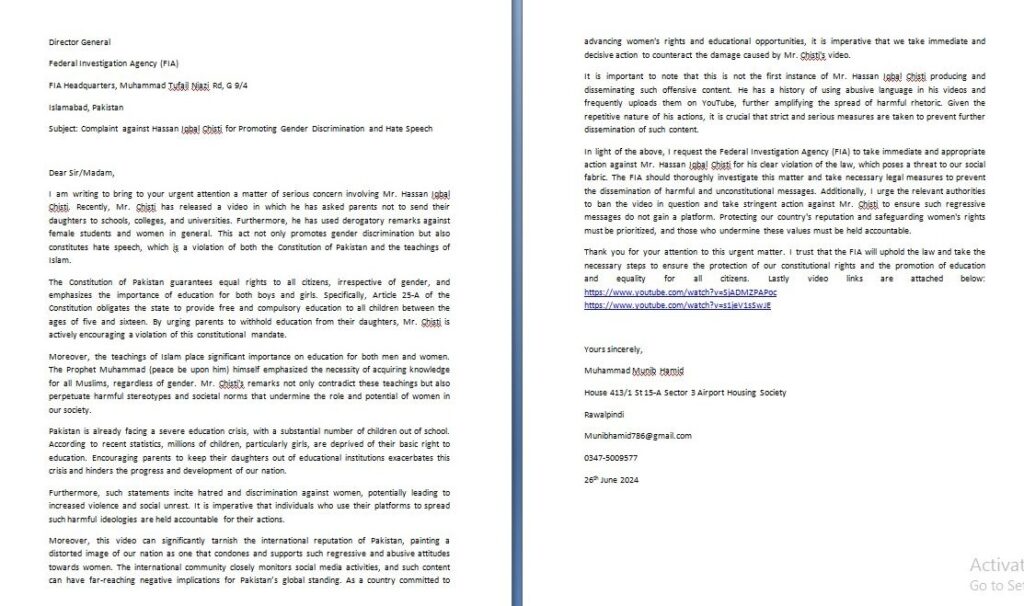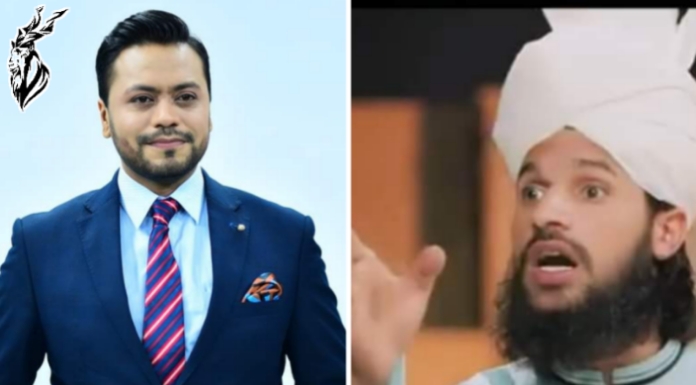Munib Hamid, a journalist and anchorperson, has taken a stand against cleric Hafiz Hasan Iqbal Chishti’s harmful ideologies by filing a complaint with the Federal Investigation Agency (FIA). He accuses Chishti’s latest song of opposing girls’ education and women emancipation, falsely claiming that schools are not a place for learning.
Application charges that Chishti has a history of targeting working women through his controversial Kalams, using offensive language and promoting harmful stereotypes. He asserts that Chishti has perpetuated these stereotypes through his videos and public speeches.
Munib Hamid’s application argues that Chishti’s message contradicts the teachings of Islam, which emphasize the importance of knowledge acquisition for all Muslims. Munib Hamid points out that the constitution of Pakistan ensures equal access to education for everyone, regardless of sex, color, or religion, as stated in Article 25-A.
The Journalist in his application demands that the FIA takes strict action against Chishti and removes the video from social media platforms to prevent further harm. He insists that this action is necessary to prevent the spread of harmful ideologies and to protect the rights of girls and women.
This is the application submitted by the Anchorperson:

The Human Rights Commission of Pakistan (HRCP) joins Munib Hamid in condemning the cleric’s derogatory remarks and abusive language. The HRCP urges the state to take action against clerics promoting harmful stereotypes, which hinder women from exercising their constitutional rights. The statement came in a press conference by the representative of the HRCP at a press conference at National Press Club. HRCP further said that 12 million girls out of school. The alarmingly high incident of violence against women, Pakistan can’t afford giving space to such people.
By speaking out against Chishti’s harmful ideologies, Munib Hamid and the HRCP are advocating for a more inclusive and equitable society. A just society where all individuals can exercise their right to education and reach their full potential.
